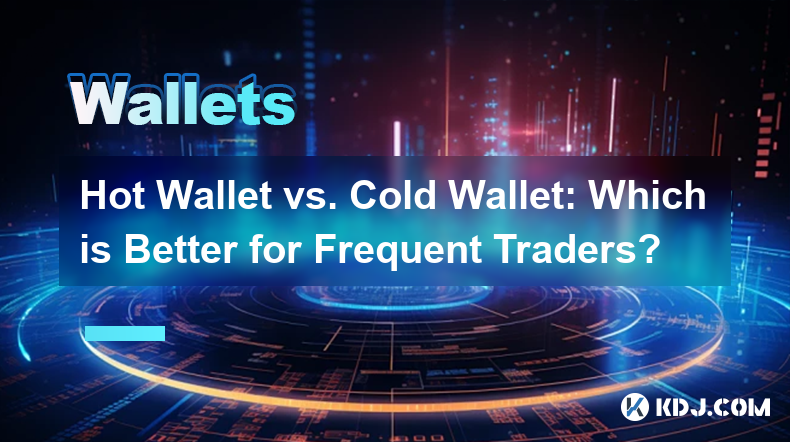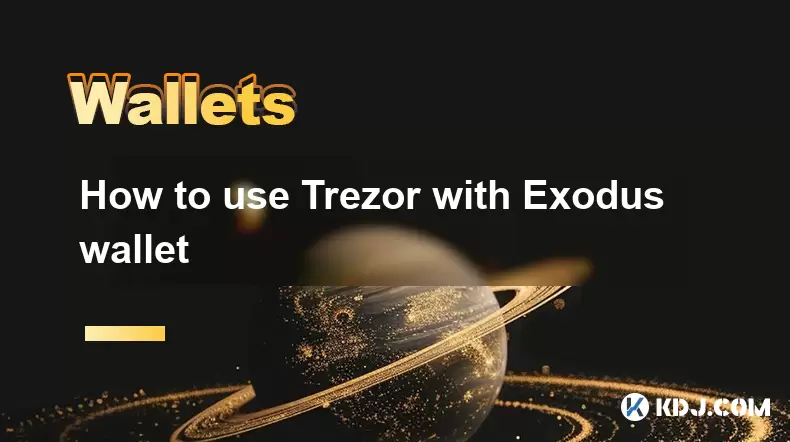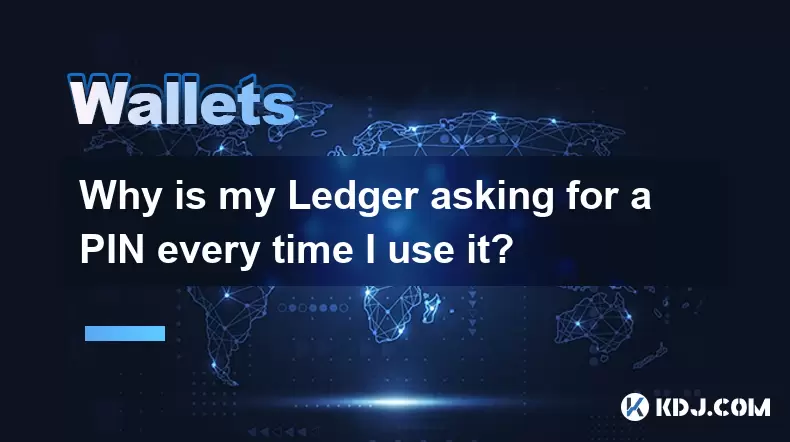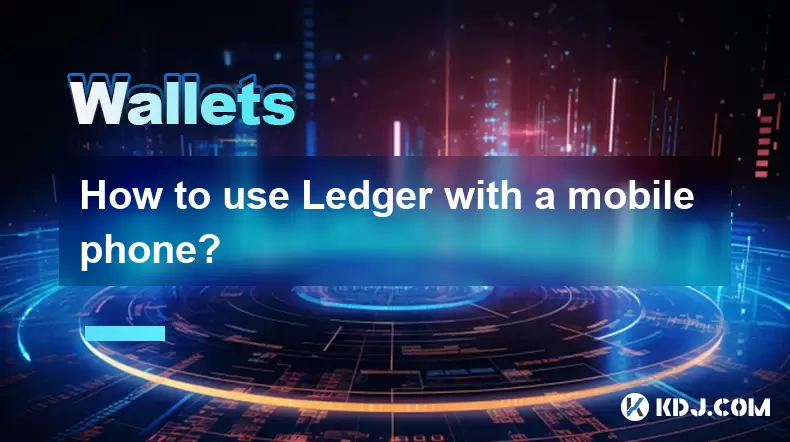-
 Bitcoin
Bitcoin $108,092.5658
-0.99% -
 Ethereum
Ethereum $2,546.4530
-1.12% -
 Tether USDt
Tether USDt $1.0000
0.01% -
 XRP
XRP $2.2676
0.12% -
 BNB
BNB $659.1616
-0.30% -
 Solana
Solana $148.8297
-1.97% -
 USDC
USDC $1.0000
0.02% -
 TRON
TRON $0.2874
-0.30% -
 Dogecoin
Dogecoin $0.1676
-3.64% -
 Cardano
Cardano $0.5765
-1.73% -
 Hyperliquid
Hyperliquid $37.2069
-6.18% -
 Bitcoin Cash
Bitcoin Cash $497.9918
-0.10% -
 Sui
Sui $2.8427
-2.26% -
 Chainlink
Chainlink $13.2689
-2.06% -
 UNUS SED LEO
UNUS SED LEO $9.0541
0.15% -
 Stellar
Stellar $0.2487
-0.92% -
 Avalanche
Avalanche $17.7710
-3.09% -
 Shiba Inu
Shiba Inu $0.0...01167
-1.28% -
 Toncoin
Toncoin $2.7488
-2.80% -
 Hedera
Hedera $0.1559
-2.28% -
 Litecoin
Litecoin $85.8945
-2.48% -
 Monero
Monero $316.0985
-2.09% -
 Dai
Dai $1.0001
0.02% -
 Polkadot
Polkadot $3.3481
-1.83% -
 Ethena USDe
Ethena USDe $1.0000
0.00% -
 Bitget Token
Bitget Token $4.2910
-3.04% -
 Uniswap
Uniswap $7.4131
-0.09% -
 Aave
Aave $280.9266
-2.67% -
 Pepe
Pepe $0.0...09816
-3.18% -
 Pi
Pi $0.4557
-2.29%
Hot Wallet vs. Cold Wallet: Which is Better for Frequent Traders?
Apr 21, 2025 at 04:07 pm

In the world of cryptocurrencies, securing your digital assets is paramount. For frequent traders, the decision between using a hot wallet and a cold wallet can significantly impact both the security and convenience of their trading activities. Hot wallets are connected to the internet, offering quick access to funds for trading, while cold wallets are offline, providing a higher level of security. This article delves into the nuances of both types of wallets to help frequent traders make an informed decision.
Understanding Hot Wallets
Hot wallets are cryptocurrency wallets that are connected to the internet. They are designed for ease of use and quick transactions, making them ideal for frequent traders who need to access their funds rapidly. Examples of hot wallets include software wallets, mobile wallets, and web wallets. These wallets are often provided by cryptocurrency exchanges, allowing users to trade directly from their accounts.
The primary advantage of hot wallets is their convenience. Since they are always online, traders can execute transactions at any time, which is crucial for those who engage in day trading or need to respond quickly to market changes. However, this constant connectivity also poses a significant risk. Hot wallets are more susceptible to hacking and cyber attacks because they are online targets for malicious actors.
Understanding Cold Wallets
In contrast, cold wallets are offline storage solutions for cryptocurrencies. They are not connected to the internet, which significantly reduces the risk of hacking and unauthorized access. Examples of cold wallets include hardware wallets and paper wallets. Hardware wallets are physical devices that store private keys securely, while paper wallets involve printing out the private and public keys on a piece of paper.
The main advantage of cold wallets is their enhanced security. Since they are offline, they are immune to online threats, making them an excellent choice for storing large amounts of cryptocurrencies long-term. However, for frequent traders, cold wallets can be less convenient. Accessing funds from a cold wallet requires additional steps, such as connecting a hardware wallet to a computer or manually entering private keys, which can slow down the trading process.
Comparing Security and Convenience
For frequent traders, the trade-off between security and convenience is a critical consideration. Hot wallets offer unparalleled convenience, allowing traders to quickly buy, sell, and transfer cryptocurrencies. This is essential for those who need to capitalize on short-term market movements. However, the convenience comes at the cost of increased vulnerability to cyber attacks.
On the other hand, cold wallets provide robust security, protecting your assets from online threats. This is particularly important for traders who hold significant amounts of cryptocurrencies and want to safeguard their investments. However, the security comes with the drawback of reduced accessibility, which can be a hindrance for frequent trading activities.
Practical Considerations for Frequent Traders
Frequent traders need to balance the need for quick access to funds with the necessity of securing their assets. One practical approach is to use a combination of both hot and cold wallets. Traders can keep a small amount of cryptocurrency in a hot wallet for daily trading activities, while storing the majority of their assets in a cold wallet for long-term security.
Here are some steps to implement this strategy:
- Choose a reliable hot wallet: Select a reputable hot wallet that offers strong security features, such as two-factor authentication and encryption. Popular options include Coinbase Wallet and MetaMask.
- Set up a cold wallet: Invest in a hardware wallet like Ledger or Trezor, which are widely recognized for their security. Follow the manufacturer's instructions to set up the wallet and securely store your recovery phrase.
- Allocate funds appropriately: Determine how much cryptocurrency you need for daily trading and transfer that amount to your hot wallet. Keep the rest in your cold wallet.
- Regularly transfer funds: Periodically move any profits or additional funds from your hot wallet to your cold wallet to minimize exposure to online risks.
Assessing Risk Tolerance
Every trader has a different level of risk tolerance, which should influence their choice between hot and cold wallets. Traders with a higher risk tolerance may prefer hot wallets due to their convenience and the potential for quick profits. However, they must be prepared to accept the increased risk of losing their funds to cyber attacks.
Conversely, traders with a lower risk tolerance may lean towards cold wallets. While this choice may slow down their trading activities, it provides peace of mind knowing that their assets are secure. These traders might need to adjust their trading strategies to accommodate the slower access to funds.
Cost Considerations
The cost of using hot and cold wallets can also impact a trader's decision. Hot wallets are often free or low-cost, especially those provided by cryptocurrency exchanges. However, they may charge transaction fees, which can add up for frequent traders.
Cold wallets, particularly hardware wallets, come with an upfront cost. Devices like Ledger and Trezor can range from $50 to $200, depending on the model. While this is a significant initial investment, it is a one-time cost that provides long-term security for your assets. Traders need to weigh these costs against the potential risks and benefits of each type of wallet.
Frequently Asked Questions
Q: Can I use both hot and cold wallets simultaneously?
A: Yes, many traders use a combination of hot and cold wallets to balance convenience and security. They keep a small amount of cryptocurrency in a hot wallet for daily trading and store the majority in a cold wallet for long-term security.
Q: How often should I transfer funds from my hot wallet to my cold wallet?
A: The frequency of transfers depends on your trading activity and risk tolerance. Some traders transfer funds daily, while others do it weekly or monthly. The key is to minimize the amount of time your funds are exposed to online risks.
Q: Are there any alternatives to hot and cold wallets for frequent traders?
A: Yes, some traders use multi-signature wallets, which require multiple private keys to authorize a transaction. This can offer a middle ground between the convenience of hot wallets and the security of cold wallets. However, setting up and managing multi-signature wallets can be more complex.
Q: What should I do if my hot wallet is compromised?
A: If you suspect your hot wallet has been compromised, immediately transfer any remaining funds to a cold wallet or a new hot wallet. Change all associated passwords and enable two-factor authentication if not already in use. It's also wise to report the incident to the wallet provider and consider filing a report with law enforcement.
Clause de non-responsabilité:info@kdj.com
Les informations fournies ne constituent pas des conseils commerciaux. kdj.com n’assume aucune responsabilité pour les investissements effectués sur la base des informations fournies dans cet article. Les crypto-monnaies sont très volatiles et il est fortement recommandé d’investir avec prudence après une recherche approfondie!
Si vous pensez que le contenu utilisé sur ce site Web porte atteinte à vos droits d’auteur, veuillez nous contacter immédiatement (info@kdj.com) et nous le supprimerons dans les plus brefs délais.
-
 M Échangez maintenant
M Échangez maintenant$0.1995
30.31%
-
 CRO Échangez maintenant
CRO Échangez maintenant$0.0942
16.18%
-
 VVS Échangez maintenant
VVS Échangez maintenant$0.0...02147
15.14%
-
 SHX Échangez maintenant
SHX Échangez maintenant$0.0117
15.12%
-
 LAUNCHCOIN Échangez maintenant
LAUNCHCOIN Échangez maintenant$0.1331
14.45%
-
 HSK Échangez maintenant
HSK Échangez maintenant$0.6708
13.82%
- Kraken, aile arrière et Memecoins: une balade sauvage au Grand Prix de Singapour!
- 2025-07-09 00:50:12
- Le rallye d'audit d'Ethereum Wall Street et Ruvi Ai: un cocktail crypto
- 2025-07-09 00:55:12
- Onyxcoin (XCN) contre Solana (Sol): un pari prometteur dans le jeu de la cryptographie?
- 2025-07-09 00:30:12
- Pari audacieux de Corewave: comment l'IA est de remodeler l'exploitation bitcoin
- 2025-07-09 00:30:12
- Flashback IPO Coinbase (Coin): le rallye est-il surpris ou en train de commencer?
- 2025-07-08 22:50:12
- Bitcoin Price, Elon Musk et Btcbull: un trifecta haussier?
- 2025-07-09 00:10:12
Connaissances connexes

Comment utiliser Trezor avec un portefeuille Exode
Jul 09,2025 at 12:49am
Connexion du portefeuille matériel Trezor sur le portefeuille du logiciel Exodus Pour utiliser Trezor avec Exodus Wallet , les utilisateurs doivent co...

Pourquoi mon grand livre demande-t-il une épingle à chaque fois que je l'utilise?
Jul 08,2025 at 11:21pm
Comprendre le but de la broche sur votre appareil Ledger Le PIN (numéro d'identification personnel) est une fonction de sécurité cruciale intégrée...

Puis-je avoir plusieurs codes PIN sur un grand grand livre?
Jul 09,2025 at 12:35am
Comprendre les bases des échanges décentralisés (DEX) Une bourse décentralisée , ou DEX, est un type de plateforme de trading de crypto-monnaie qui fo...

Comment utiliser le grand livre avec un téléphone mobile?
Jul 08,2025 at 10:49pm
Connexion du portefeuille matériel du grand livre aux appareils mobiles L'utilisation d'un portefeuille matériel avec un téléphone mobile offr...

How to avoid MetaMask phishing scams?
Jul 08,2025 at 11:35pm
<h3>Understanding MetaMask Phishing Scams</h3><p>MetaMask phishing scams are deceptive tactics used by cybercriminals to trick users...

How to recover my MetaMask wallet with a secret recovery phrase?
Jul 08,2025 at 10:01pm
<h3>Understanding the MetaMask Secret Recovery Phrase</h3><p>When using MetaMask, a widely adopted Ethereum-based wallet, users are ...

Comment utiliser Trezor avec un portefeuille Exode
Jul 09,2025 at 12:49am
Connexion du portefeuille matériel Trezor sur le portefeuille du logiciel Exodus Pour utiliser Trezor avec Exodus Wallet , les utilisateurs doivent co...

Pourquoi mon grand livre demande-t-il une épingle à chaque fois que je l'utilise?
Jul 08,2025 at 11:21pm
Comprendre le but de la broche sur votre appareil Ledger Le PIN (numéro d'identification personnel) est une fonction de sécurité cruciale intégrée...

Puis-je avoir plusieurs codes PIN sur un grand grand livre?
Jul 09,2025 at 12:35am
Comprendre les bases des échanges décentralisés (DEX) Une bourse décentralisée , ou DEX, est un type de plateforme de trading de crypto-monnaie qui fo...

Comment utiliser le grand livre avec un téléphone mobile?
Jul 08,2025 at 10:49pm
Connexion du portefeuille matériel du grand livre aux appareils mobiles L'utilisation d'un portefeuille matériel avec un téléphone mobile offr...

How to avoid MetaMask phishing scams?
Jul 08,2025 at 11:35pm
<h3>Understanding MetaMask Phishing Scams</h3><p>MetaMask phishing scams are deceptive tactics used by cybercriminals to trick users...

How to recover my MetaMask wallet with a secret recovery phrase?
Jul 08,2025 at 10:01pm
<h3>Understanding the MetaMask Secret Recovery Phrase</h3><p>When using MetaMask, a widely adopted Ethereum-based wallet, users are ...
Voir tous les articles

























































































